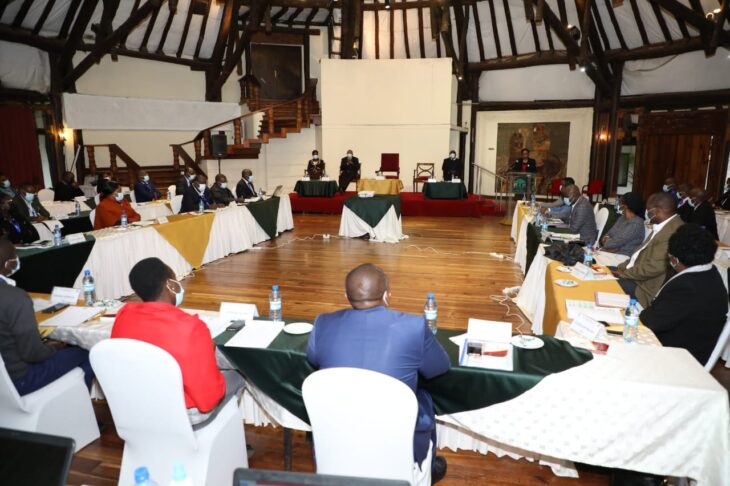NAIROBI,Kenya, July 21 – 27 recently appointed judges of the Environment and Land Court (ELC) and the Employment & Labour Relations Court (ELRC) will report to work on August 1.
The judges who are undergoing induction comprise 18 from the ELC, while nine are from the Employment and Labour Relations Court.
According to Chief Justice Martha Koome, eight of the judges will sit full-time in newly established Environment and Land Courts, which brings the total number of ELC’s in the country to 34 at the county level.
“Your appointment brings hope to Kenyans seeking justice through your courts,” said CJ Koome.
The ELC now has 51 judges following the latest appointments.
The new ELC stations are in Nyamira, Kilgoris, Siaya, Vihiga, Kwale, Isiolo, Homa Bay and Nanyuki.
Koome who spoke to judges from the two courts on Wednesday ahead of their deployment, said she now hopes to see improved access to justice and expeditious disposal of cases.
“Approximately 60 per cent of cases adjudicated in our courts are land matters or have a land related dimension. The implication is that the Environment and Land Court either in its original or appellate jurisdiction deals with the bulk of cases in our courts,” said the CJ.
The ELRC now has three full-time judges in Kericho, Malindi and Bungoma.
The court has 13,500 cases pending, with the bulk of cases at 9,500 being in Nairobi.
It has nine fully fledged registries in Nairobi, Kisumu, Kericho, Nyeri, Mombasa, Eldoret, Nakuru, Bungoma and Malindi.
Chief Justice Koome said Kenyans were yearning for and deserve accessible and expeditious delivery of justice.
“Every Judge must take individual initiative to reduce backlog and ensure that we hear and determine cases in a timely manner. My expectation is that no case should take more than three years before a trial court and no more than one year in an appellate court” she emphasised.
She urged the judges to embrace active case management to deal with the backlog and the expected increased case filings.
She stressed that case management should be court driven and should not be left to litigants and advocates to determine the way cases are managed.
“You must reduce the number of adjournments and strive to resolve cases with fewer hearings. Always endeavour to make each case hearing date meaningful. You must discourage interlocutory applications and preliminary objections.”
She assured that her administration will give the judges adequate support to discharge their duties.
CJ Koome pointed out that both courts are critical for the development of the indigenous social justice jurisprudence decreed by the transformative 2010 Kenya Constitution.
“Our Constitution is unique in its preoccupation with values, principles, rules, and policies touching on the environment and land, and fair labour practices. We must ensure that these values and principles radiate to every nook and cranny of our legal system,” she said.
The Chief Justice asked the judges to inspire public trust and confidence in the judicial functions they undertake by being sensitive and more responsive to litigants.
“They have a right to be informed of the orders which affect them, to understand the same and the reason why the orders have been made. You must go out of your way to treat litigants with politeness, dignity, and respect.”
She said judges and other judicial officers should exhibit independence, impartiality, and consistency in their decisions. “Embrace excellence, innovation, and accountability,” she advised.
Want to send us a story? Contact Shahidi News Tel: +254115512797 (Mobile & WhatsApp)


